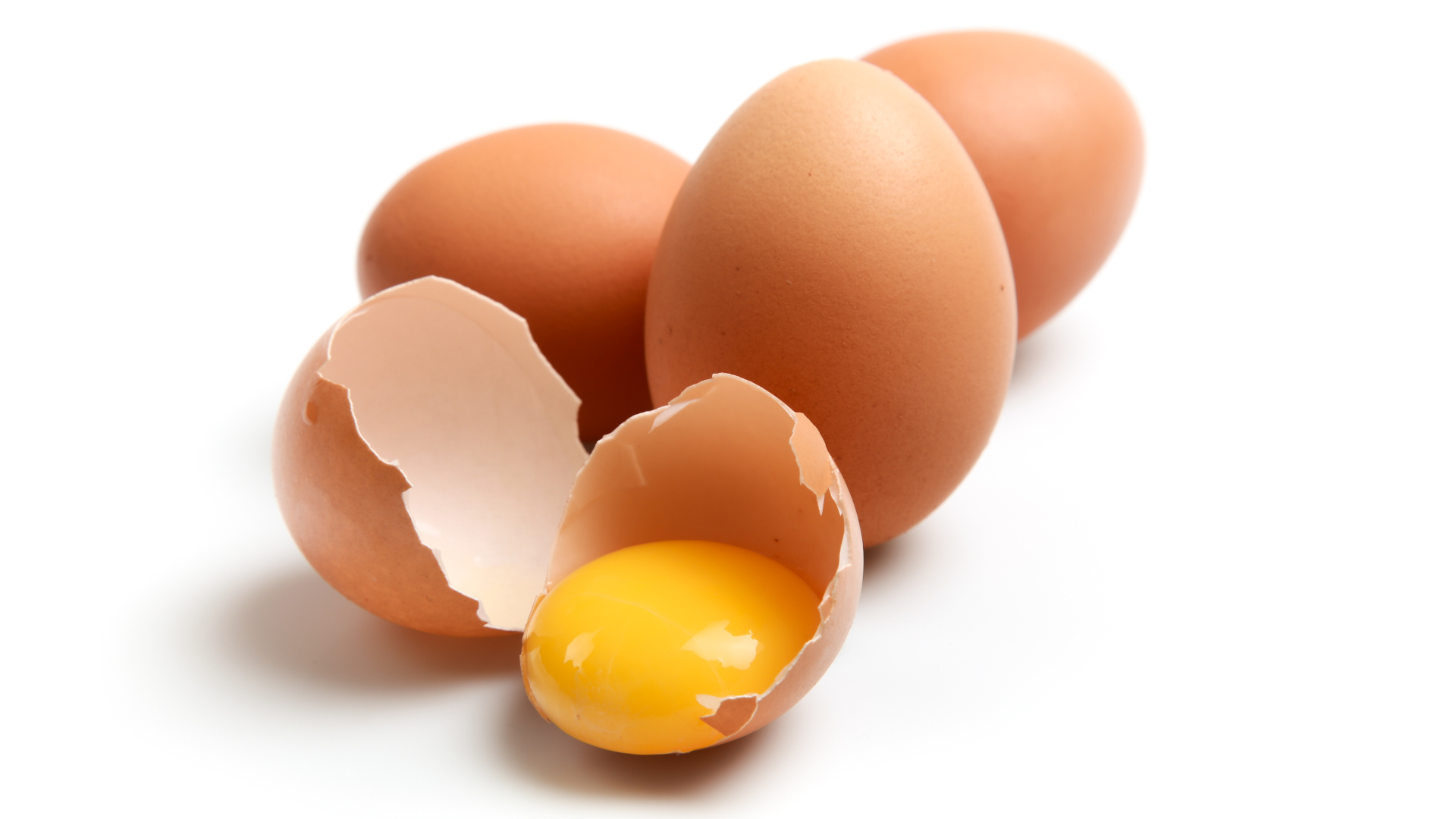Eggs contain creatine, but only in very small quantities: around 0.1 grams per egg, in the yolk alone. Fortunately, there are alternatives for optimizing creatine intake.
What is the creatine content of eggs?
Creatine is found exclusively in the egg yolk, which is also the most nutritious part of the egg. Egg white, while rich in protein, contains none at all.
Natural creatine in food calculator
To put these values into perspective, here is a table comparing the creatine content of different food sources:
| Feed | Creatine content (g/100 g) |
|---|---|
| Egg (yellow) | 0,2 |
| Beef | 0,45 |
| Herring | 0,65-1 |
| Salmon | 0,45 |
| Pork | 0,5 |
Cooking can significantly reduce the creatine content of foods rich in creatine. Values given are for raw foods.
The relatively low creatine content of eggs is explained by their different physiological role to that of meat or fish. Animal muscles, which are particularly hard-working, naturally require more creatine to function. We'll come back to this in our special report on the creatine content of fish.
Eggs are still interesting, however, as they provide essential nutrients for the body's natural synthesis of creatine:
- Arginine
- Glycine
- Methionine
These amino acids enable the liver and kidneys to produce creatine endogenously, thus supplementing (but not replacing!) direct dietary intake.
Is this enough for an athlete's creatine needs?
How does creatine work?
Creatine is essential to our muscular energy metabolism. During short, intense efforts (less than 10 seconds), such as a sprint, it enablesrapid regeneration of ATP (Adenosine TriPhosphate), the main source of energy for muscle cells.
The body needs around 2 grams of creatine a day to maintain its normal functions. Half is produced naturally by the body, the other half comes from food:
- The body produces it naturally from three amino acids (glycine, arginine, methionine). This synthesis takes place mainly in the liver, kidneys and pancreas. From there, creatine is transported by the blood to the muscles, where it is stored and used to produce energy rapidly.
- Creatine from our diet is mainly available from food sources of animal origin, which poses a particular challenge for certain diets. In fact, plant products naturally contain little or no creatine.
Creatine is naturally present in our bodies and its name comes from the Greek "kreas" meaning flesh or meat.
Why supplement?
There are two reasons for taking supplements. Either because the basic intake is too low (vegetarian diet, for example), or to increase performance at high intensity over a certain period (physical preparation, specific training phase...).
It's the saturation of creatine stores in athletes that is responsible for improved performance, and studies show that it's very difficult to reach these creatine levels through diet alone.
The effects of supplementation include :
- An increase in maximum strength
- Increased power for brief physical efforts
- Increased training volume
To be effective, supplementation should provide 3-5 g of creatine per day, the equivalent of 30-50 eggs!
Alternatives richer in natural creatine remain insufficient to achieve the optimal doses recommended for athletic performance. This is why creatine monohydrate is a go-to dietary supplement for athletes seeking to optimize their strength and power. It should be noted that creatine is suitable for vegetarians and vegans.
Supplementation enables you to improve your sporting performance, while maintaining a balanced diet. In fact, taking creatine does not make you put on weight, and at Protéalpes we guarantee that our creatine is calorie-free, additive-free, sweetener-free, doping substance-free and Creapure® certified.
In conclusion, although eggs contain creatine, their low content (0.1g per egg) does not provide the optimum intake for athletes seeking to improve their performance.
To maximize the benefits of creatine on muscle strength and recovery, creatine monohydrate supplementation remains the most effective solution, particularly for top-level athletes and vegetarians. Eggs nevertheless retain their place in a balanced diet, providing essential nutrients for the body's natural creatine synthesis. As always, choose quality over quantity, with organic and/or free-range eggs!
To keep learning
- If you're wondering how to tell the difference between creatine and creatinine, two molecules that are often confused, we explain it all in a dedicated article.
- There are many brands of creatine, but only one stands out from the crowd. Find out which is the best creatine for athletes.
- Creatine can also be consumed with a variety of beverages: hot water, coffee or milk - we take a look at the best options. And for those wondering about combining creatine with caffeine, particularly in morning coffee, there are certain interactions to be aware of.
- Other aspects may also surprise, such as the link between creatine and tendonitis, or its use in the evening before going to bed and the real impact of creatine in pre-workout.
- Finally, if you're not sure which form to choose, take a look at the comparison between creatine monohydrate and Kre-Alkalyn.














